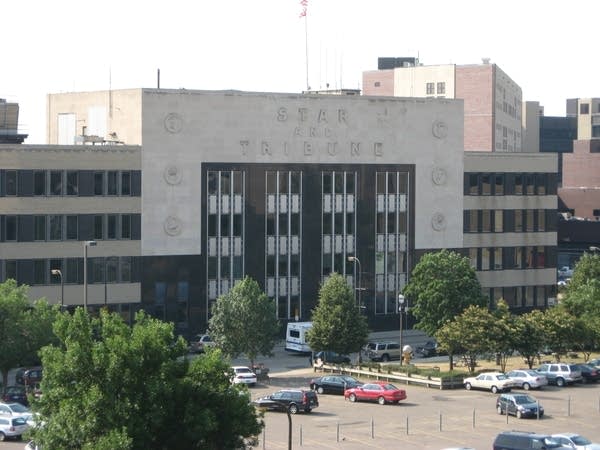Will the Star Tribune survive its shot at renewal?

A Chapter 11 bankruptcy gives a company a shot at cutting its costs, reworking loans and taking other actions aimed at making it a viable operation.
Bankruptcy used to be a major stain on a company's reputation, but these days consumers are getting pretty used to the process. They fly airlines in bankruptcy, eat at restaurants in bankruptcy, shop retailers in bankruptcy.
Some companies survive what is in effect major financial surgery. Some don't.
No matter what the outcome, there's a lot of pain in the process. Owners, lenders, creditors, employees and others figure to lose at least something, as they sacrifice, willingly or not, to revive a firm. But the thinking is they'd lose more if the company were to simply shut down. Chapter 11 gives them a chance to hold on to something and gives a company a chance at a new lease on life.
Create a More Connected Minnesota
MPR News is your trusted resource for the news you need. With your support, MPR News brings accessible, courageous journalism and authentic conversation to everyone - free of paywalls and barriers. Your gift makes a difference.
"Companies that are experiencing financial problems can have a uniform and unified proceeding to try to negotiate and restructure their financial affairs," said George Singer, a veteran bankruptcy attorney at Lindquist & Vennum.
In the Star Tribune's case, Singer notes the filing did not come as a surprise. The paper had been threatening to file for bankruptcy if unions didn't agree to some $20 million in givebacks. The union's didn't. And the paper made good on its threat.
Bankruptcy is often used to effectuate a sale. That is not out of the realm of possibility.
The Star Tribune would not comment beyond the press release it issued when it filed for bankruptcy.
Star Tribune Publisher Chris Harte said the company intends to use the Chapter 11 process to make the paper stronger, leaner and more efficient so that it is well-positioned to benefit when the economy turns around.
Most big-city newspapers are struggling these days as competition from the Internet erodes revenues and readership.
But some papers are in more trouble than others, because they were bought by new owners who took on huge debt to buy them.
Boston-based media analyst Robert Picard notes the Star Tribune is one of those papers finding it can't afford payments on that debt.
"The Star Tribune is going into bankruptcy simply because it was created with a very, very heavy debt load when it was purchased by Avista Capital. And all the money came at a very high price," Picard said. "And they're just not able to pay for the debt, given what's happening in the economy."
The other bankrupt newspaper firm, Tribune Company, also was saddled with tremendous debt when it was sold. That ended up helping push the company and some of the most prestigious newspapers in the country, including the Chicago Tribune and Los Angeles Times, into Chapter 11.
Industry analysts think the Star Tribune's bankruptcy could play out in many ways, and perhaps lead to some startling changes in the paper's business model.
Maybe the Star Tribune remains on its own. Maybe it merges with the St. Paul Pioneer Press.
Bankruptcy attorney George Singer expects a Star Tribune sale had to be at least considered as part of the bankruptcy process.
"Bankruptcy is often used to effectuate a sale. That is not out of the realm of possibility. I'm not too sure if those arrangements have been explored. But I can assure you the lenders have given it thought," he said. The most logical buyer of the Star Tribune would seem to be Media News, which runs the smaller Pioneer Press.
In a market with two newspapers, analyst Robert Picard said which paper survives often comes down to a matter of willpower.
"Sometimes it's a matter of who has the best printing plant. Sometimes it's a matter of who really wants to stay in the business, and whose owners just want to get out of it," he said.
For now, neither the Star Tribune nor Pioneer Press show signs of wanting to end their battle for Twin Cities newspaper readers. But the Star Tribune's bankruptcy may end up bringing that day closer.
